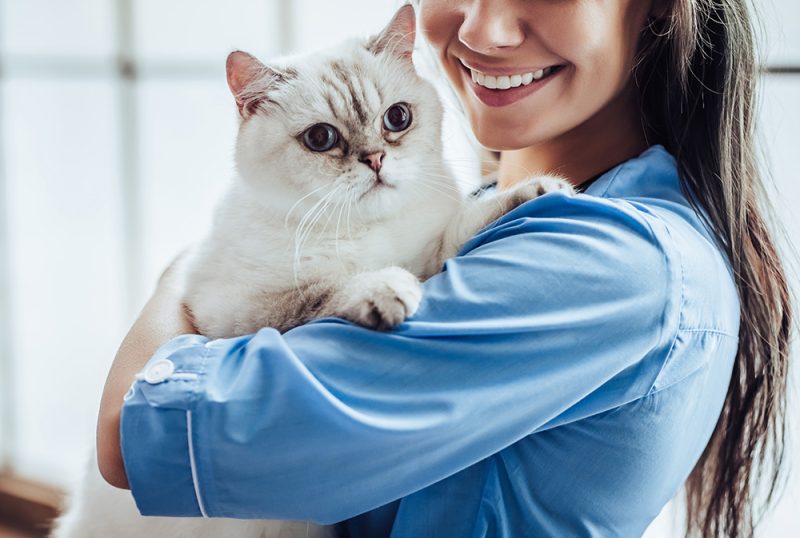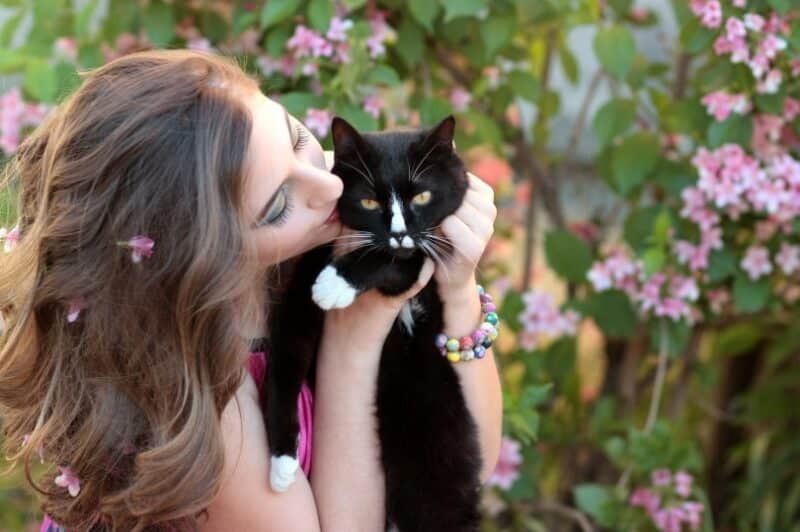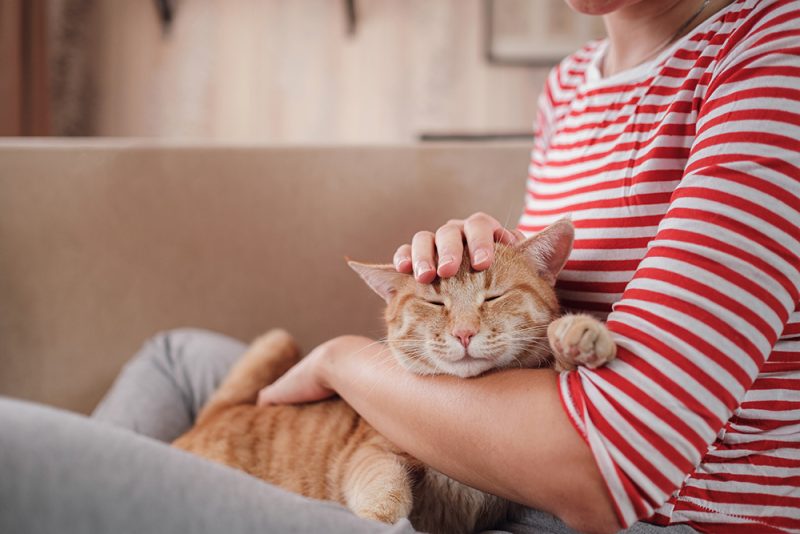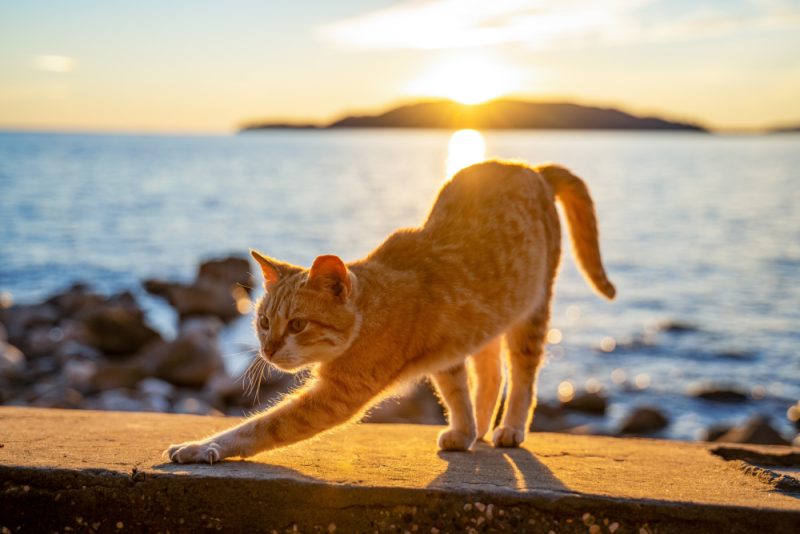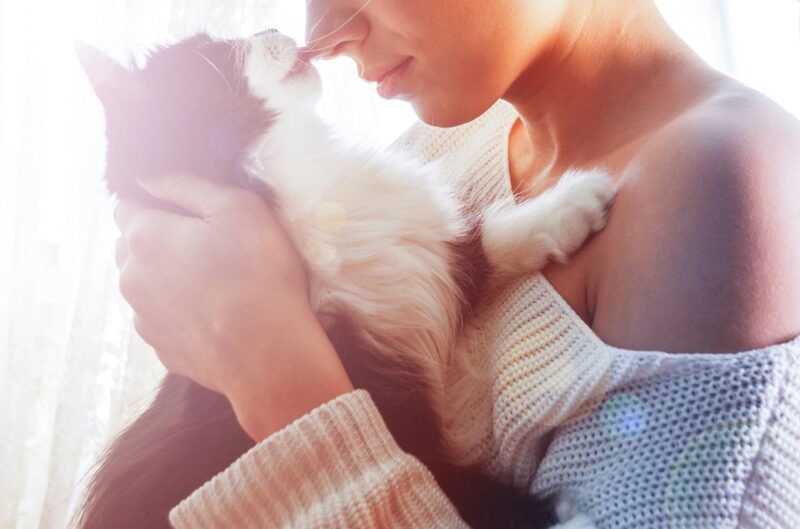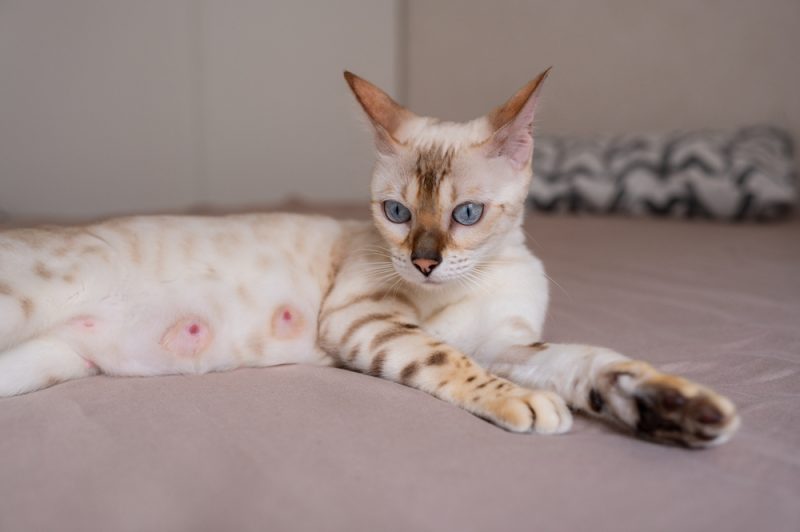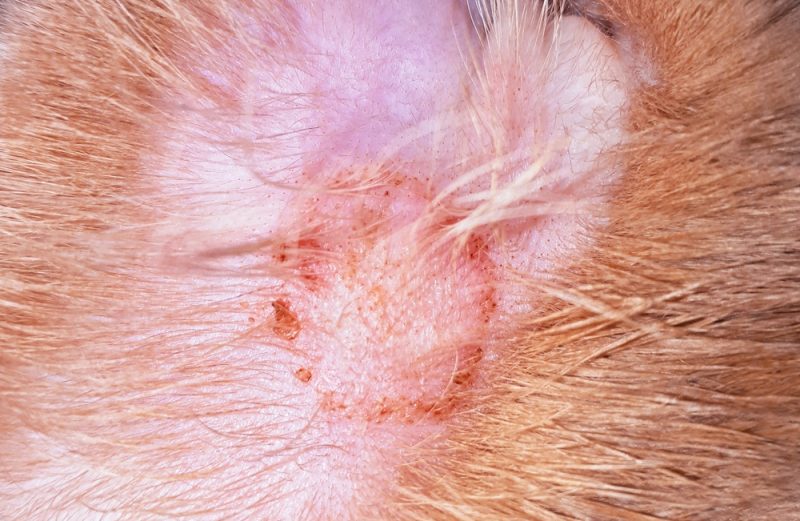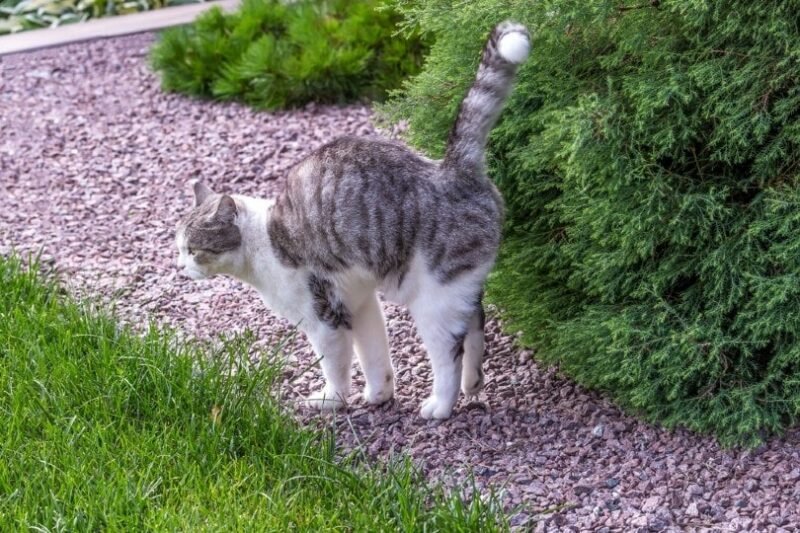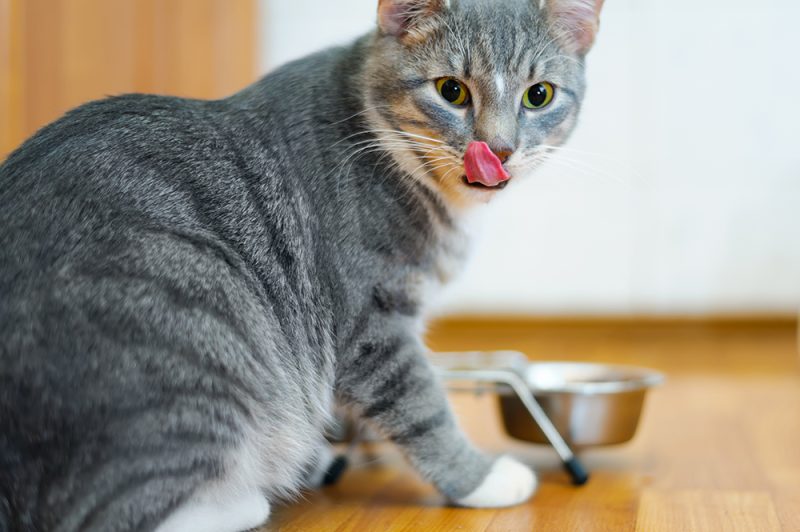Vet visits can be extremely stressful for you and your cat, which may lead to you opting to avoid taking your cat to the vet altogether. However, it’s extremely important for your cat to see a vet at least once per year unless they’re a kitten, senior cat or have an ongoing medical condition, which would require more frequent visits.
Your vet can work with you to find ways to manage any stress that your cat may have about being at the vet or in the car, but it’s important that you don’t skip out on annual vet visits, even for a healthy cat!

How Often Should Adult Cats Go to the Vet?
During the earliest days of their life, kittens are able to get some immunity from the antibodies passed to them from their mom through her milk. Once they’re weaned, though, they will begin needing vaccines to help build immunity against dangerous diseases.
When you first bring your kitten home, they should be taken to the vet, even if they’re not due for any vaccines. A new pet wellness check is an important part of bringing home a new pet. Your vet will advise you on the correct vaccination protocol for your kitten, vaccines generally start around 6–8 weeks of age. This visit is repeated, sometimes with variations in the vaccinations and medications administered, every 3–4 weeks until the kitten is around 16–20 weeks old. This means that you should plan for at least three vet visits for a new kitten.
Spaying or neutering your cat is usually recommended between 4 and 6 months of age, so you will also need to make an appointment for this surgery. Microchipping at this time is also advisable.
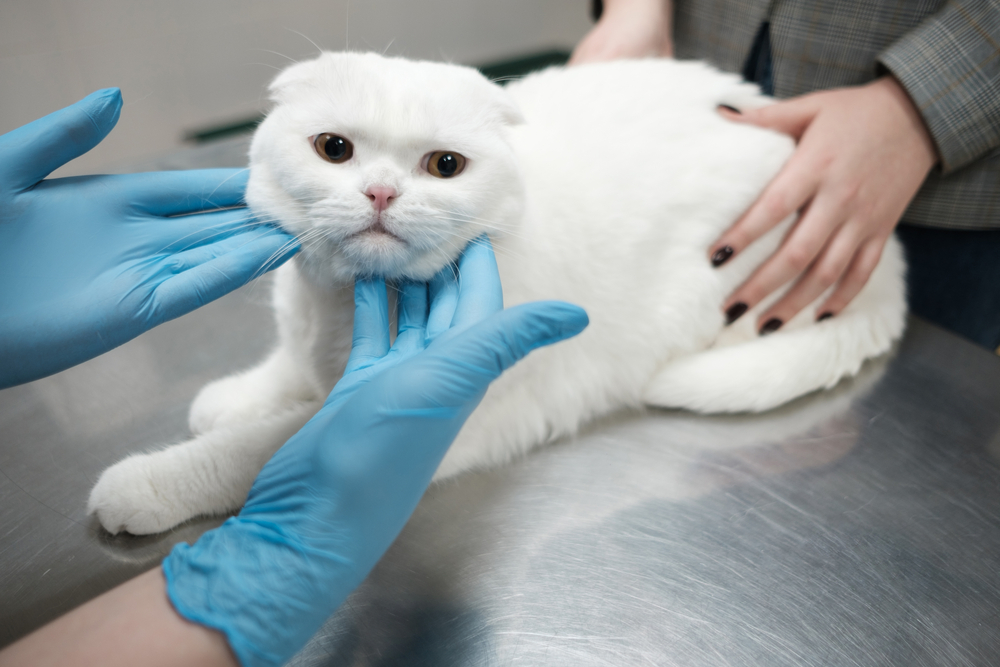
How Often Should Kittens Go to the Vet?
Healthy adult cats should see the vet at least once per year. During this visit, the vet will perform a hands-on physical exam and administer any necessary vaccinations. Even if your cat is not due any vaccinations, for example if your cat has a rabies vaccination that lasts for three years, they should still see the vet at least annually. These check ups are an ideal opportunity to check for and discuss any concerns such as dental care, parasite control, diet and behavior.
For cats with a medical condition, vet visits may need to occur more frequently. Your vet will be able to provide you with the best guidance about how often they need to see your cat to manage their condition. If you go too long without taking your cat to the vet, they may not be able to authorize repeat prescriptions until they get a chance to evaluate your cat and make sure that the treatment and dosage is correct.

The 6 Signs That a Cat Needs to See a Vet
1. Change in Appetite or Drinking
Cats are good at hiding pain and signs of illness, but a reduced or complete lack of appetite is a sign there is something wrong and you should get them checked out by your vet. However, it might not always be the case because some conditions may actually heighten a cat’s appetite.
Also, beware if your cat starts being overly thirsty and drinks a lot of water. It could be a sign of conditions such as kidney disease or diabetes.
2. Excessive Fatigue
Although most cats spend a lot of their day sleeping, it should concern you if your kitty suddenly becomes overwhelmingly lethargic, or there is an obvious change in their normal activity levels. It may manifest as a cat that doesn’t get excited over things they usually enjoy, or one that is sleeping more than usual and lacking interest in socialization. I such cases you should reach out to a veterinarian.
If you need to speak with a vet but can't get to one, head over to PangoVet. It's an online service where you can talk to a vet online and get the advice you need for your pet — all at an affordable price!

3. Changes in Your Cat’s Urine and Stool Output
Unsurprisingly, most owners attribute a kitty’s undesirable toilet habits to behavioral problems. However, if a good toilet trained cat starts avoiding urinating in the litter box, they could be suffering from a urinary tract problem. Contact your vet urgently if your cat is struggling to pass pee and is distressed, this is particularly important in male cats who are more prone to suffering from blocked bladders. Also, check for straining to urinate or poop, blood in the stool or urine, or change in smell.
4. Abnormal Walking Style
If your cat is dragging, avoiding putting weight on a leg, or appears to be struggling to walk, they may be suffering from arthritis, an injury, or a fracture. It would be best if you got your kitty medical attention as soon as possible.
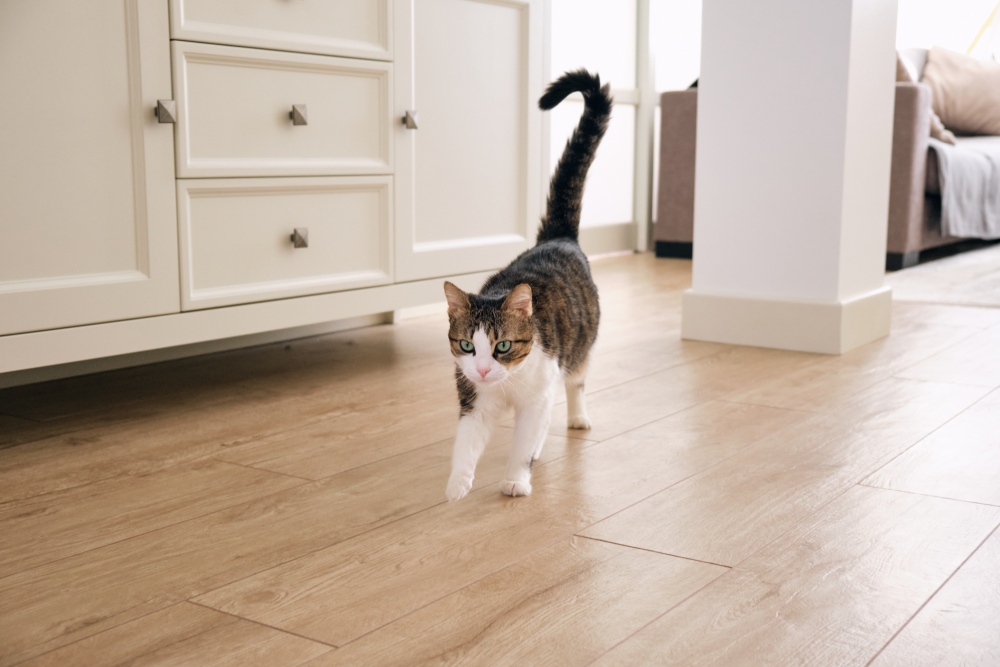
5. After a Major Trauma
Check-in with your vet if your cat fought with another animal, or has suffered from other trauma such as falling or being hit by a car. Even if your cat appears unhurt, it is always best to get them examined as soon as possible as there may be internal injuries that are not immediately obvious. Other signs of distress such as staring, crying, and hiding require a vet’s opinion as well.
6. A Lump or Unusual Growth
Some bumps may appear harmless, especially if the cat seems just fine. However, it is impossible to tell if the lump is benign without veterinary evaluation so it’s advisable to get it assessed as soon as possible, especially if it is fast growing.
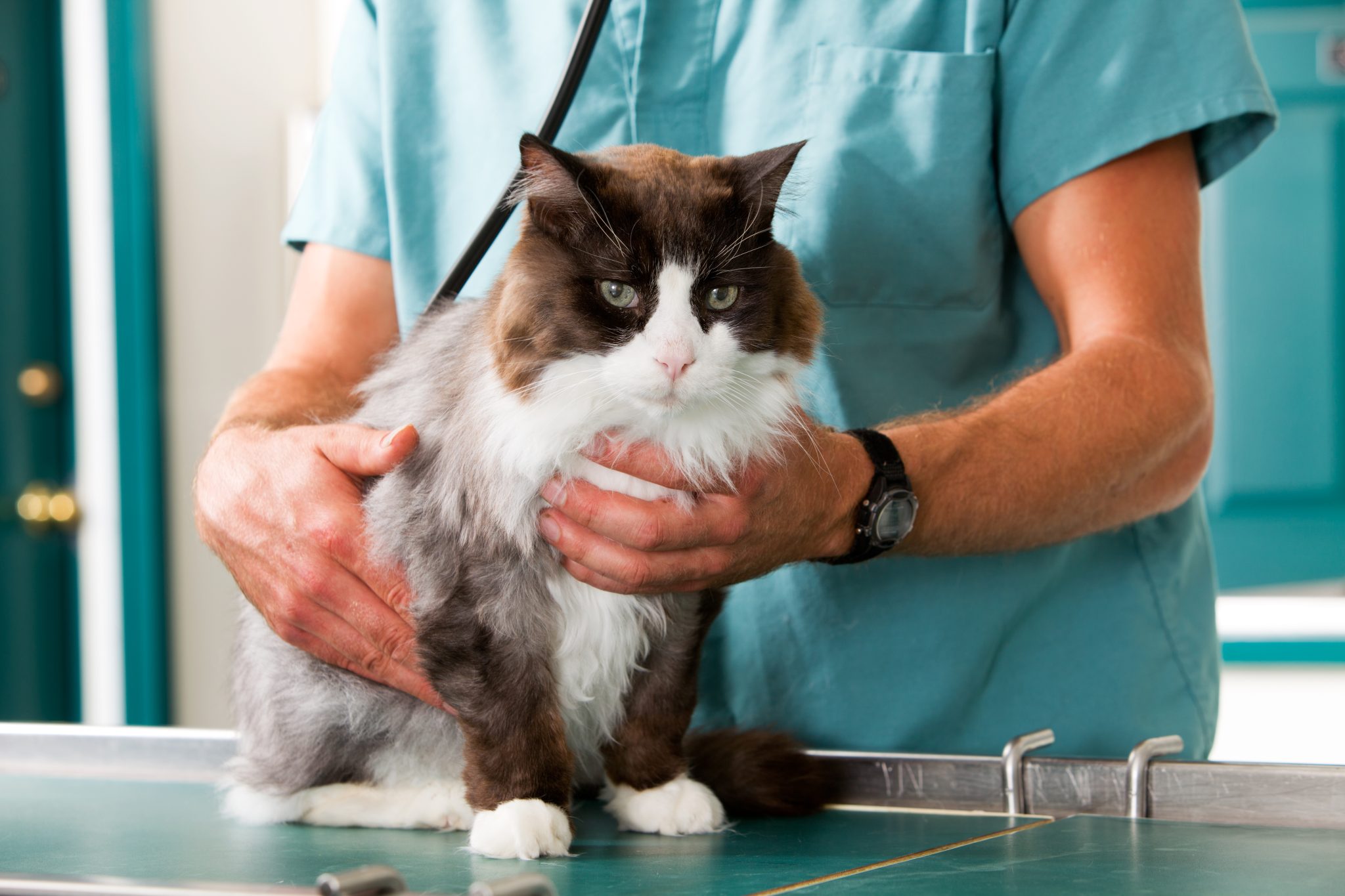

Conclusion
The best thing you can do when you get a new cat is talk to your vet about what they recommend for your cat. For a healthy adult cat, you should be prepared to take them to the vet at least annually, with the possibility of trips in between for acute problems. Cats aged 11 years and over should see a vet every 6 months to ensure they stay healthy, while kittens need multiple visits early in life that typically taper in frequency around 4 months of age.
Featured Image Credit: 4 PM production, Shutterstock
